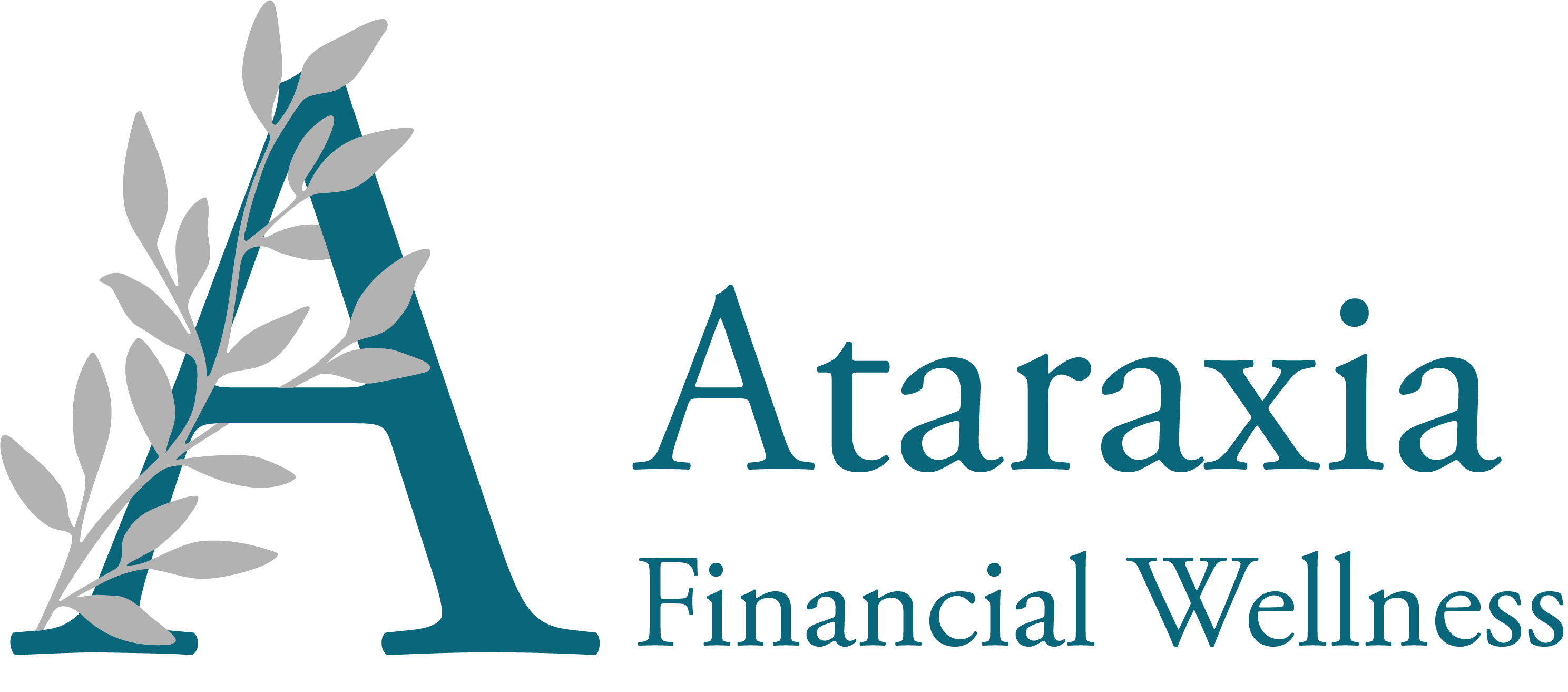Financial stress can affect everyone. And it take a serious toll on mental health, relationships, and overall wellbeing. The good news? There are practical steps you can take today to reduce that pressure and regain control of your financial life.

Here are five powerful strategies to help you feel more secure and less anxious about money:
1. Create a Clear Budget
The foundation of financial peace is knowing exactly where your money goes. Create a simple budget by:
- Tracking all income and expenses for at least a month
- Categorizing spending into needs vs wants – and being honest with yourself about it!
- Reviewing and adjusting monthly
- Ataraxia Financial Wellness’ budgeting tool can make tracking your spending and categorizing your expenses easy.
If your doesn’t balance, or if you spend more than you make each month, take some time to really consider where your money goes. Are these expenses contributing to your financial stress? If they are, how can they be reduced?
If you feel like you’re in over your head, try getting help. Join one of Ataraxia’s support groups or book a one-on-session to get started.
2. Build an Emergency Fund
Nothing reduces financial anxiety like having a safety net. Start small:
- Aim for $1,000 initially for minor emergencies
- Work toward 3-6 months of expenses for long-term security
- Set up automatic transfers to your emergency savings for each pay day
- Keep funds in a separate, easily accessible account – consider a high interest savings account that is not attached to your bank card.
This buffer helps prevent you from needing to use debt when an unexpected expense comes up.
Take this a step further and double check that you’ve included large expenses and periodic expenses in your budget. If you have a plan in place for annual insurance payments and periodic car repairs, you’ll be less likely to use your emergency fund.
3. Address Debt Strategically
Read Ataraxia Financial Wellness’ post Debt Avalanche vs. Debt Snowball to start thinking about how you could strategically pay off your debt. Do you think focusing on the high interest debts would bring you the most peace? Or should you start with the smallest accounts to build up momentum?
Get strategic with other areas of debt repayment:
- Be aware of what your debt balances, payments, and interest rates are
- Negotiate with creditors for better terms if possible
- Stop using credit cards while paying off the balance
- Use “free” or “extra” money to make additional payments – including tax refunds, GST credits, and bonuses
Each payment is progress. And each paid-off debt reduces stress!
4. Practice Financial Self-Care
Your relationship with money impacts your mental health:
- Try “no-spend” days to break impulse buying habits
- Find free or low-cost activities you enjoy
- Unfollow social media accounts that trigger spending urges or make you feel like your lifestyle isn’t good enough
- Celebrate small financial wins – each month that is within your budget and each debt payment is a win.
- Take time away from money – go for a walk, read a book, do something you enjoy that does not involve thinking about money, making money, spending money, or talking about money
- Use Ataraxia’s Financial Wellness quiz to learn more about your financial wellness
Remember: taking care of your mental health around money is just as important as the numbers themselves. A clear and calm mind makes better money decisions.
5. Seek Support and Education
You don’t have to navigate your finances alone:
- Join one of Ataraxia’s support groups
- Take free financial literacy courses online or at the library
- Include your partner, children (if appropriate), and close friends in your journey
- Consider working with a financial counselor or advisor
- Read a library book about personal finances – Canadian authors like Kelley Keehn have excellent books that will educate you without boring you!
Knowledge reduces fear, and community provides accountability and encouragement.
Final Thoughts
Financial stress doesn’t disappear overnight, but these steps create momentum toward a more secure future. Start with one strategy that feels the most comfortable for you and build from there. Remember: progress matters more than perfection.
The goal isn’t to eliminate all financial worries, but to build confidence and systems that help you handle challenges when they arise. You’ve got this!
